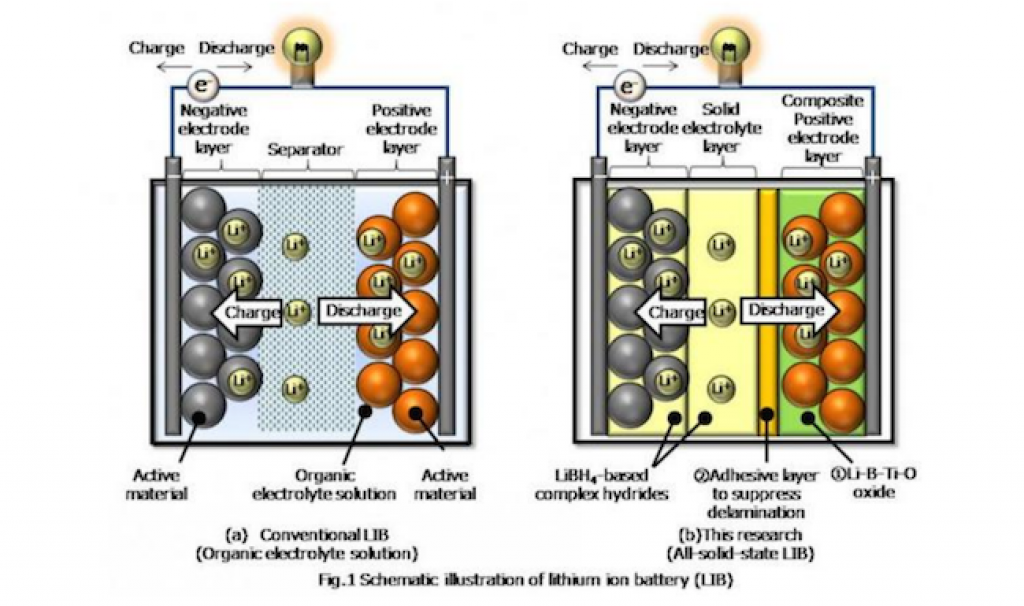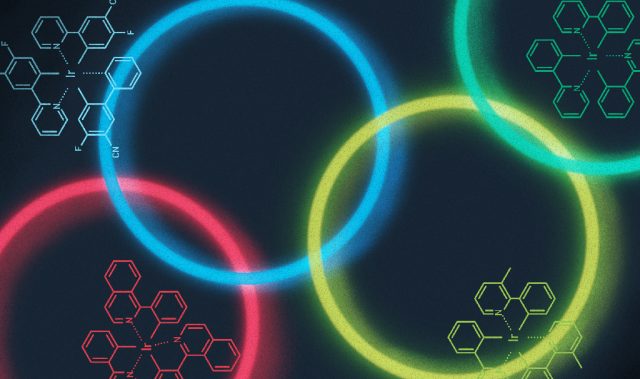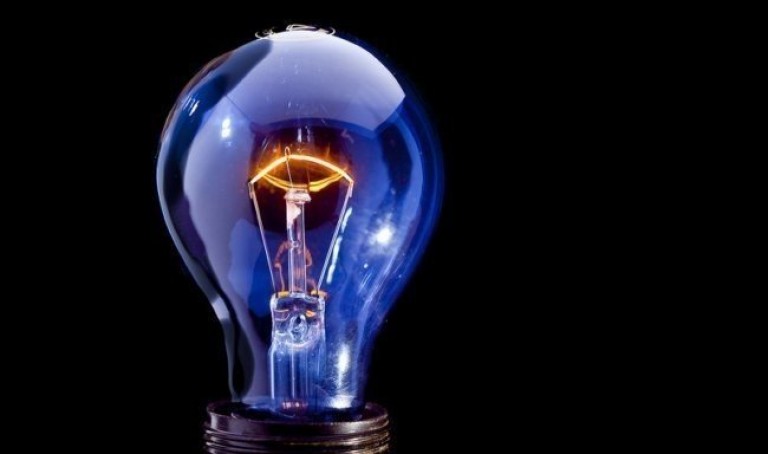
AsianScientist (Dec. 15, 2015) – Hitachi, Ltd. and Tohoku University’s Advanced Institute for Materials Research (AIMR) have developed a basic technology to reduce the internal resistance of the all-solid-state lithium ion battery (Li-ion battery) using a complex hydride as a solid electrolyte.
This research was part of a collaborative project between Hitachi and AIMR called ‘Collaborative Research for Next Generation Innovative Battery’ and was partially presented in November 2015 at the 56th Battery Symposium, held in Aichi Prefecture, Japan.
High energy density Li-ion batteries are already being used in applications such as portable devices (smartphones and tablets), electric vehicles and as an adjustor of the supply and demand in renewable energy.
The conventional Li-ion battery consists of a separator, a positive electrode layer and a negative electrode layer. The battery is filled with organic electrolyte solution in which lithium ion conducts between the two electrode layers during the charge and discharge process.
However, conventional Li-ion batteries which use an organic electrolyte solution face the issue of thermal durability. The upper operating temperature is limited to around 60°C owing to volatility of the organic electrolyte solution. Consequently, it is difficult to use the conventional Li-ion battery in a high temperature environment without a cooling system.
As an alternative to liquid electrolytes, Professor Orimo Shin-ichi’s lab at AIMR and the Institute for Material Research at Tohoku University have been conducting research on solid electrolytes such as LiBH4-based complex hydrides.
As their new thermally durable Li-ion battery does not require the cooling system common in conventional Li-ion batteries, it is expected to lead to further developments of compact battery systems and be useful in a wider variety of applications such as large-scale industrial machines with motors, and medical machines which need to be heated for autoclave sterilization.
The reduction of internal resistance improves the charge-discharge performance of the all-solid-state Li-ion battery, resulting in the batteries successfully operating at temperatures as high as 150°C, with a discharge capacity of 90 percent of theoretical value. Orimo and team have confirmed the fast lithium ion conductivity in the wide temperature ranges from room temperature to 150°C.
———
Source: Tohoku University.
Disclaimer: This article does not necessarily reflect the views of AsianScientist or its staff.











